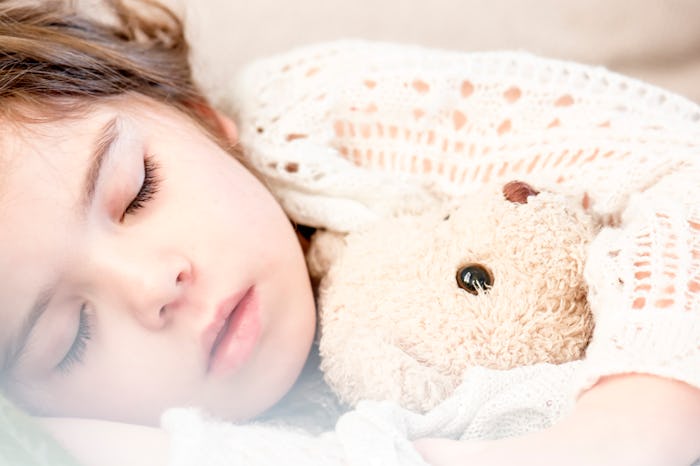Even if you're new to parenting, chances are you're familiar with the idea of self-soothing. After all, it makes sense that your kid can learn how to calm down (and hopefully go to sleep) with little to no help from you. But it's also smart to consider the long-term implications of this technique. For instance, how does self-soothing affect your kid later in life?
In general, self-soothing is seen as a part of infant sleep training. It's often a component of the cry it out method, which has its own set of fans and detractors. The basic idea is that your baby will learn to calm down on her own (often with the help of a little thumb-sucking) and eventually fall asleep, as noted by Sleeping Baby. Ideally, your baby will have an easier time dozing off, and she won't need you on standby every time she stirs awake at night. Your baby will learn how to self-soothe and sleep with little to no help from you.
What, however, will become of self-soothers as they mature? Do they grow up with massive trust issues? Like many big childcare topics, the current studies provide somewhat contradictory and inconclusive results. A 2012 study in Pediatrics found that differing sleep techniques showed no lasting effects, either positive or negative, on children as they grew up. What's more, a 2016 study in Pediatrics found that letting your baby cry it out (self-soothing is a common part of this technique) did not have any long-term negative consequences, either. So what is a concerned parent supposed to do with this information?
Until there is concrete evidence on either side, you can feel free to choose whatever approach to sleep works best for you and your little one. Of course, every baby is different, too. One of your children may take to self-soothing like a champ, while his sibling won't have anything to do with the idea. Use whatever method works, and rest easy knowing that you're unlikely to cause any lasting harm by asking your little one to self-soothe (or not).
